
![]() Main Page
Main Page
![]() Feedback
Feedback
 The Author
The Author
 News
News
 Search
Search
 The Planets
The Planets
 Mercury
Mercury
 Venus
Venus
 Earth
Earth
 Mars
Mars
 Jupiter
Jupiter
 Saturn
Saturn
 Uranus
Uranus
 Neptune
Neptune
 Pluto
Pluto
 Dwarf Planets
Dwarf Planets
 The Solar System
The Solar System
 The Sun
The Sun
 The Moon
The Moon
 Meteors
Meteors
 Comets
Comets
 Asteroids
Asteroids
 Amazing facts
Amazing facts
 Other
Resources
Other
Resources
 Poster Store
Poster Store
 Multimedia
Multimedia
 Links
Links
 Awards
Awards
 Glossary
Glossary
 Astronomers
Astronomers
 Webrings
Webrings
 Bibliography
Bibliography
Famous Astronomers
Welcome to the Astronomers section. Below is a short description and history of the most famous people in the history of the Solar System.
| Adams, John Couch | 1819-1892 |
|
| No Picture |
English Astronomer and mathematician who predicted Neptune in 1845 together with French astronomer Jean Leverrier, by analysing discrepancies in Uranus' orbit. | |
| Aristotle | 384-322 BC |
|
 |
Ancient Greek philosopher who though the world was round and that the Earth was in the middle of it all. He wasn't an astronomer however, and didn't go about looking at the sky to prove his theory. He also thought that objects in space were made of ether, fire, water, earth and air. | |
| Callipus | 300-370 BC |
|
| No Picture |
Ancient Greek scientist who accurately measured the length of the seasons. | |
| Cassini, Giovanni Domenico | 1621-1712 |
|
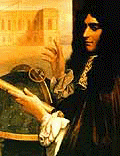 |
Italo-French astronomer, very famous for discovering four of Saturn's moons (Tethys, Dione, Rhea, Iapetus) and the Cassini division in Saturn's rings. He was an astronomer at Panzano observatory from 1648-69, Professor at the University of Bologna, and in 1671 became direcor of the Observatory of Paris. He is given credit for discovering the Great Red Spot, along with Robert Hooke, and also for being the first person to make successful measurements of longitude using eclipses of the satellites of Jupiter as a clock. | |
| Celsius, Anders | 1701-1744 |
|
 |
Swedish professor of astronomy at Uppsala University from 1730 to 1744. He created the Celsius temperature system. He also confirmed that the Earth has a flattened top in an expedition and he discovered the magnetic basis for auroras. He died in 1744 of Tuberculosis. | |
| Christy, James | --- |
|
| No Picture |
American astronomer who discovered Pluto's moon Charon in 1978 along with Robert Harrington. | |
| Copernicus, Nicolaus | 1473-1543 |
|
 |
Radical Polish astronomer who developed the Copernican system - the theory that the planets orbit the Sun. These were very revolutionary ideas at the time and they were in complete contradiction to the Ptolemic System. | |
| Einstein, Albert | 1879-1955 |
|
 |
Legendary German Jewish physicist most famous
for his relativity theories. His work has a massive impact on modern everyday science. He said that the speed of light is the fastest possible speed that can be reached and he explained the space-time phenomenon. He also wprked on the Atom bomb in America during the second world war and later played an important role in trying to promote nuclear disarmament. He won the Nobel Prize in 1921 for explaining the photoelectric effect and is one of the most well known scientists in the Western world. |
|
| Eratosthenes | 276-194BC |
|
| No Picture |
Ancient Greek scholar who was probably the first person to figure out the Earth's circumference. | |
| Galilei, Galileo | 1564-1642 |
|
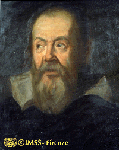 |
Legendary Italian renaissance astronomer,
mathematician and physicist who made many important discoveries in all of these fields. As an astronomer he refined the telescope and was able to train it at the stars, subsequently used it in 1610 to spot Mercury, observe Venus' phases, study sunspots, discover Jupiter's moons Ganymede, Callisto, Io and Europa. He also discovered Saturn's rings. He also worked out that the speed at which objects fall isn't influenced by their weight (so if you dropped a polystyrene and a lead ball from exactly the same height in an area with no wind or air resistance, they would land at the same time) and he studied pendulums too. On top of this he invented a primitive thermometer. He was accused of heresy by the Inquisition
in 1633 for proving that the Earth does indeed orbit the Sun.
To see for yourself the kind of images of the heavens that Galileo would have seen, visit this website. |
|
| Gregory, James | 1638-1675 |
|
| No Picture |
Scottish mathematician who invented the reflective telescope. | |
| Halley, Edmund | 1656-1742 |
|
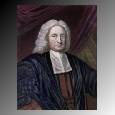 |
Famous English astronomer who worked out that Comets have orbits and predicted when Halley's comet would return. | |
| Herschel, Sir William | 1738-1822 |
|
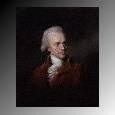 |
English astronomer who, with the improved
reflective telescope he had built, discovered Uranus as well as its moons Titania and
Oberon.
He also coined the term 'asteroid', to describe the large chunks of rock floating around our solar system |
|
| Hubble, Edwin | 1889-1953 |
|
 |
Famous American astronomer, credited for discovering and proving redshift (the phenomenon which allows astronomers to calculate the distance and relative speed of stars by analysing their light), and the expansion of the Universe. | |
| Huygens, Christian | 1629-1695 |
|
| No Picture |
17th century dutch physicist noted for his work in astronomy and physics. Amongst his achievements are the discovery of Saturn's rings and one of its moons, which he was able to accomplish thanks in large part to the advances in lens and telescope making pioneered by him and his brother Constantijn Huygens. He is also associated with the field of photonics, and helped to advance the wave theory of light. He is also famous for his proof that a pendulum's swing amplitude is independent of its period, as well as patenting the pocket clock. | |
| Kelvin, William | 1824-1907 |
|
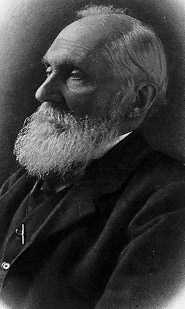 |
English scientist who devised the Kelvin temperature scale in which 0K is absolute zero, 273.15K is 0oC and 373.15K is 100oC. | |
| Kuiper, Gerad | --- |
|
| No Picture |
Dutch astronomer who, in 1951, predicted the Kuiper Belt - a belt of small, icy objects which orbit the sun beyond the orbit of Neptune. He also discovered the Uranian moon Miranda. | |
| Lassel, William | --- |
|
| No Picture |
English Astronomer who discovered Neptune's moon Triton, Uranus' moon Arial and, with W. C. Bond, Saturn's moon Hyperion. | |
| Newton, Isaac | 1642-1727 |
|
 |
Legendary English mathematician and physicist who discovered some of the most important, fundamental rules of science. He produced the laws of gravitation and mechanics, invented calculus, investigated light further and more. | |
| Jan Oort | 1900-1992 |
|
| No Picture |
Dutch astronomer who put forward the idea of the Oort cloud - a cloud of rocks, dust and suchlike that surrounds our Solar System and is where most of the comets we see originate. | |
| Piazzi, Giuseppe | 1746-1826 |
|
| No Picture |
Italian astronomer who was the first person to discovered an asteroid. He discovered it on 1st January 1801 and called it Ceres. | |
| Schiaparelli, Giovanni | 1835-1910 |
|
| No Picture |
Italian astronomer who was the first person to map Mars. | |
| Schwabe, Heinrich | --- |
|
| No Picture |
German astronomer who studied sunspots and discovered their 11-year cycle. | |
| Tombaugh, Clyde | --- |
|
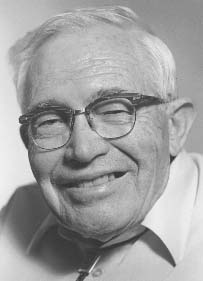 |
American astronomer who discovered Pluto in 1930 and predicted that the surface of Mars was covered in craters in 1950. | |